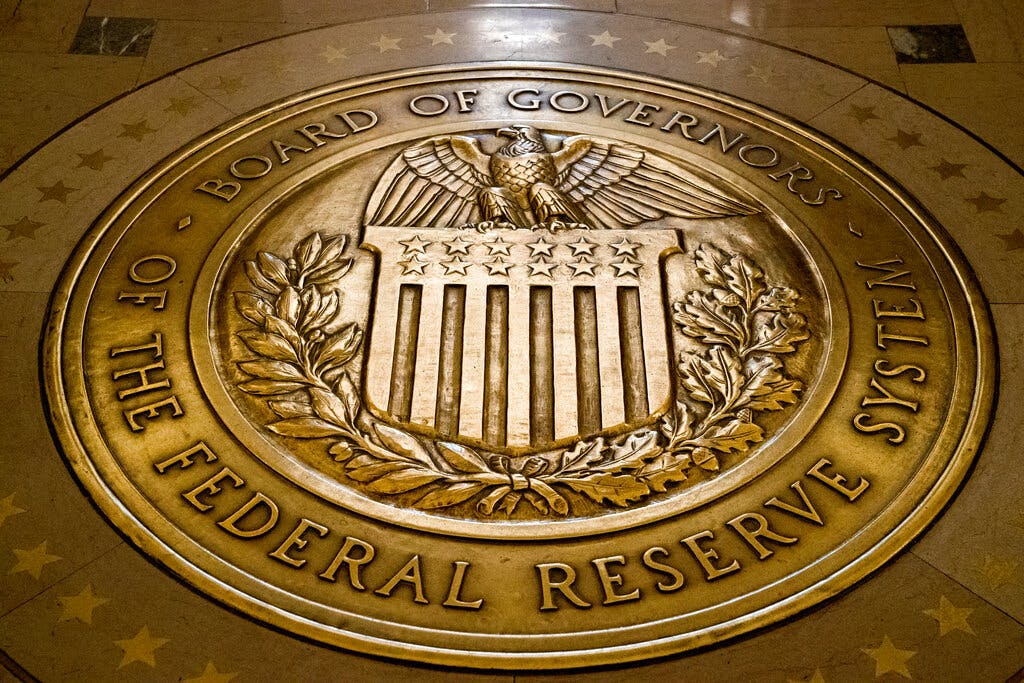The Fed’s 15 Minutes: Plan to Offload Mortgage-Backed Securities Could Push Interest Rates Even Higher
What the Fed has said ‘has already had a huge impact on interest rates in general and mortgage rates in particular. Housing affordability numbers have gone through the floor. Affordability is now at record low levels.’

In an effort to tamp down an overheated economy, the Federal Reserve has announced it will slowly start unloading the mortgage-backed securities it stocked up on during the Covid pandemic. Doing that, however, could push the cost of buying a house up even further.
The central bank, which is sitting on some $2.7 trillion in mortgage-backed securities, has said it wants to pare that number down — by up to $17.5 billion a month starting in June, and then by as much as $35 billion a month starting in September.
The plan is to simply let the securities — bundles of home mortgages purchased from the banks that initially lent the money to homeowners — roll off its balance sheet as they mature.
If the bank can’t meet its reduction targets through attrition, however, it may have to resort to selling those securities on the open market, which could nudge mortgage rates up even higher than they already are and put home buying out of reach for more Americans.
New York Federal Reserve President John Williams said this week that such sales could be an option, but probably not during the early stages of the plan. At a meeting of the Mortgage Bankers Association, Mr. Williams said that “once our balance sheet reduction is well under way … that is an option that the Federal Open Market Committee could consider.”
On May 4, the Fed chairman, Jerome Powell, announced a half-point increase in its benchmark interest rate, the largest rise in more than two decades. Along with the increase, Mr. Powell said the bank would begin reducing the $9 trillion in assets sitting on its balance sheets.
Economist Desmond Lachman, a senior fellow at the American Enterprise Institute, said the Fed’s actions to date have already pushed up the cost of housing dramatically. If it began selling its mortgage-backed securities, he said, it would only compound the problem.
“What they’ve said has already had a huge impact on interest rates in general and mortgage rates in particular,” Mr. Lachman said. “Housing affordability numbers have gone through the floor. Affordability is now at record low levels.”
After years of low interest rates, the Fed’s recent moves have pushed mortgage interest rates to their highest level since 2009. The rate on a 30-year fixed rate mortgage has risen 2.2 percentage points since the start of the year and now hovers at around 5.5 percent, the first time it has been above 5 percent in more than a decade.
Those low rates helped create an overheated housing market that is only now starting to cool. Home prices are, on average, up 34 percent over the last two years, with the median existing-home sales price reaching an all-time high in April of $391,200, according to data released Thursday by the National Association of Realtors.
The same NAR report, however, showed that existing home sales declined for the third straight month in April and housing inventory, which plummeted during the pandemic, is starting to perk back up. In another sign that buyers are starting to be scared off by the high prices, mortgage applications have also started drifting lower.
For that reason, Mr. Lachman is skeptical that the central bank will follow through on the sales.
“They let the party go on for far too long and now they are moving in the opposite direction,” Mr. Lachman said. “Facts will determine what they do going forward. If they see substantial weakening” in the housing market, “I think they will change their view.”

